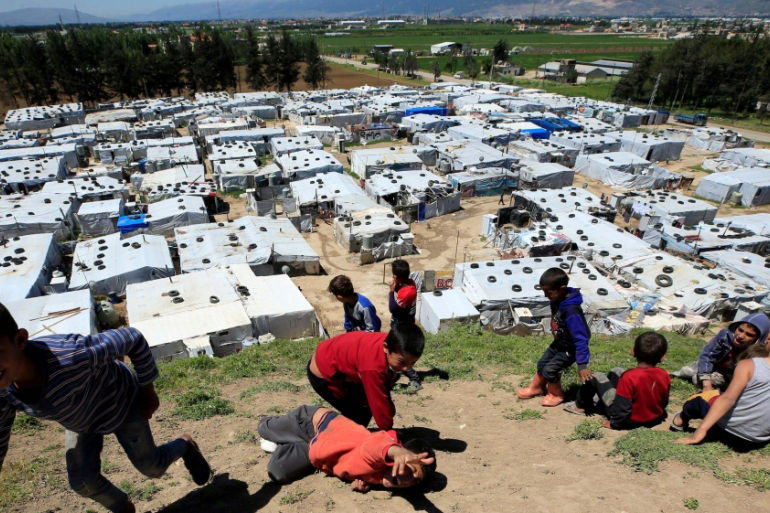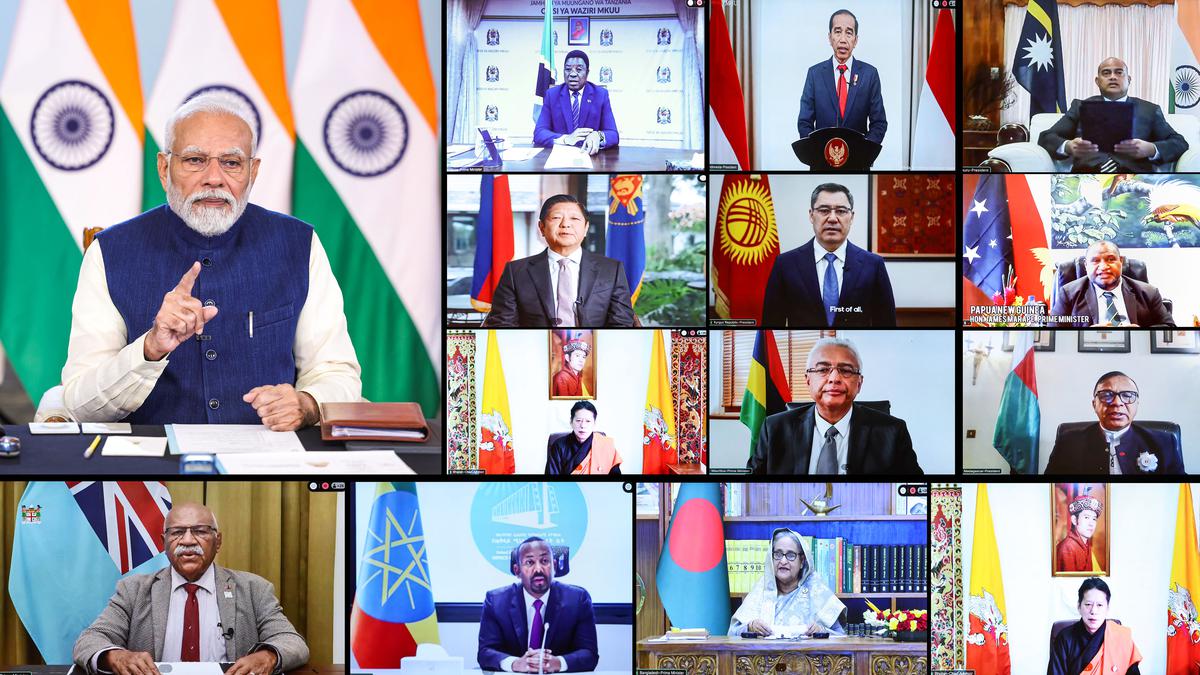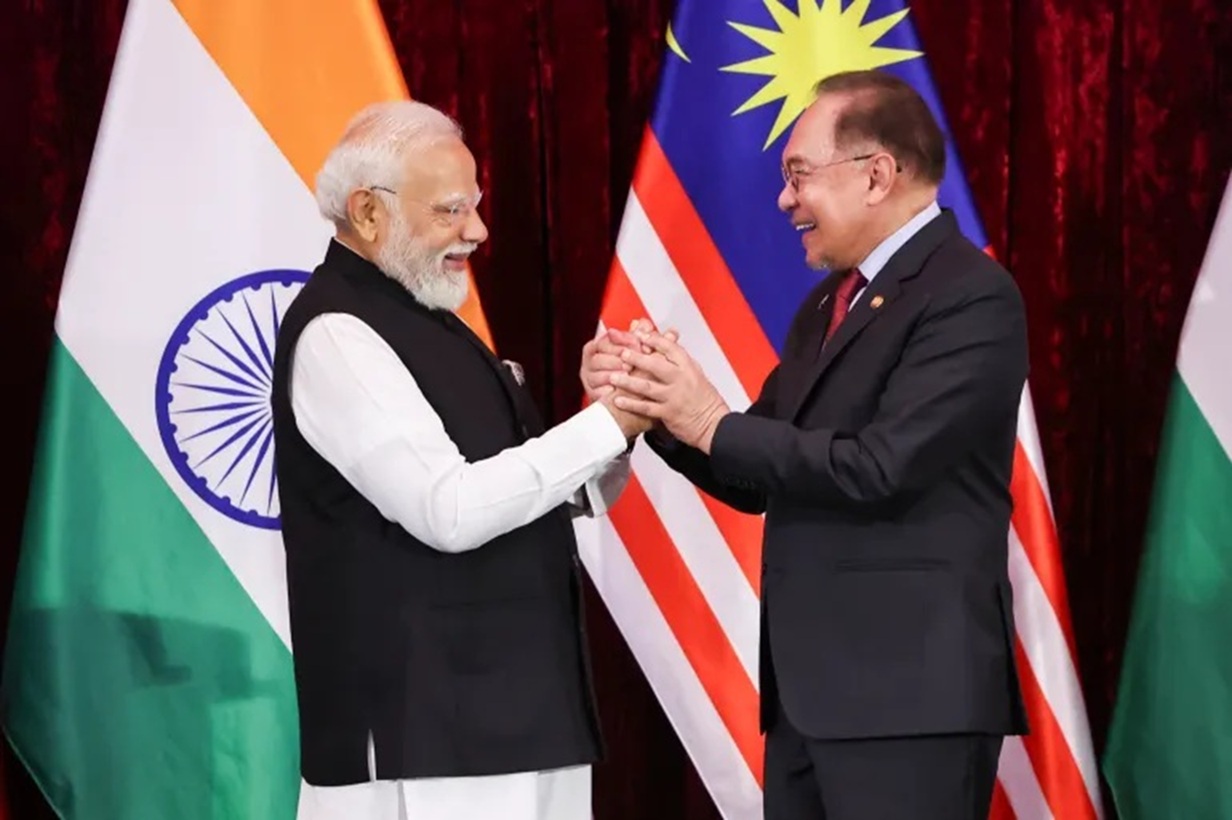Syrian crisis has remained as a challenge for the international community to dealt with.
For any nation to thrive and reach its true potential, it needs a developmental model which requires peace, education, institution building mechanisms, capacity building and a strong institutional or governmental support which due to the ongoing circumstances have been missing in Syria. The unfolding of the unfortunate circumstances has led to an ongoing war.
1The official name of Syria is the Syrian Arab Republic which is a country located in the Western Asia that is bordered by Lebanon to the Southwest and the Mediterranean Sea to the West, Turkey to the North, Iraq is in the East direction, Jordan to the South and Israel to the Southwest.
The name ‘Syria’ historically referred to a wider region which was broadly synonymous with the Levant, and known in Arabic as ‘al-Sham’. The modern state encompasses the sites of several ancient kingdoms and empires, including the Eblan civilization of the 3rd millennium BC. Aleppo and the capital city Damascus are among the oldest continuously inhabited cities in the world.
The war that broke down the regime in a peaceful way has taken a fearsome turn and the civilian protestors have been demanding the new normal from the government that has led to a situation of political unrest in the country. The terrorist organizations such as ISIS, the Syrian regime, Syrian rebels, al-Qaeda-affiliated terrorist organizations, Kurdish – led organizations and foreign militias including Hezbollah are demanding control over the country. The countries which are supporting Syria are United States, Russia, Iran and Turkey. The situation of COVID 19 pandemic also poses a great risk for the resurgence of ISIS, conflict-affected refugees, displaced communities and poses a grave risk on the country’s health, economic, political and security situation.
2Political situation, government’s role and United Nations stand on Syria has shown that the situation in Syria has been confounding for its people because almost 10 million people have fled their homes due to ongoing war that started in March 2011. Almost 4 million have fled Syria altogether and 13.5 million people are in a need of humanitarian assistance. Most of the people have been killed. The neighbouring countries are facing a dilemma of massive population influx and others are struggling with terror attacks within the Syrian territory.
It is quite coherent that the terrifying brutality and the gross violation of the most basic rules of international humanitarian law range from the promotion of enslavement on an industrial scale to the brutal attacks on the civilian people. Since the United Nations (UN) Human Rights Council was established as an Independent International Commission of Inquiry on the Syrian Arab Republic (COI) on 22nd August 2011, it has produced almost 20 outputs that have documented the violations and abuses committed by the Syrian government, anti-government armed groups and terrorist organizations, in particular, Islamic State in Iraq and the Levant (ISIL). An inquiry set up by the UN Security Council in August 2016 also observed that ‘sufficient information’ of the use of chemical weapons could amount to war crimes and crimes against humanity. Political Process in Syria has been long, difficult yet at the same time possible, special envoy tells Security Council, Outlining Steps to Build Trust, Create Constitutional Committee.
Instructions have been given to the Security Council on a scope of needs today, Special Envoy for Syria Geir Pedersen itemized endeavours to fabricate trust among fighting gatherings, encourage the making of a sacred advisory group and explain the destiny of people missing since the beginning of the contention, presently in its eighth year.
Depicting endeavours to make the way for a political cycle in Geneva for Syria’s Government and resistance, he said that following eight years of battling, “this cycle will be long and troublesome”, yet regardless conceivable. He is focused on drawing in the Government and the Syrian Negotiations Commission in a supported complete exchange — the establishment of a Syrian-drove and – possessed cycle.
The destiny of a huge number of people missing must likewise be explained and his Office is expounding strategies for aggregating, combining, defending and trading data, just as embraced look. “The size of this issue is of exceptional extents,” he stated, requiring months, if not years, of careful work. He additionally called for quicker activity on the arrival of prisoners and abductees, squeezing the two sides to guarantee their security.
All the more extensively, he said the gathering of a protected panel could open a more extensive political cycle whenever drew closer in the correct soul. He keeps on running after the last concession to its synthesis and terms of reference. Numerous previous contrasts have been limited and an agreement explained on: adjusted co- leading plans; an equation for dynamic; shared acknowledgement of the United Nations assistance job and a political pledge to the security of all included.
In the following discussion, delegates concurred that the protected council must be adjusted in its development and work techniques, with the United Kingdom’s agent reviewing that goal 2254 (2015) set a cut-off time of a half year — 34 months prior — for a timetable to draft another constitution. “We truly can’t permit Syrian specialists to drag this out uncertainly,” she stated, approaching those with impact to urge the Syrian system to take part in the political advancement.
Along comparable lines, the United States delegate said the Council must stay joined behind the Geneva arrangements as the single way ahead. While a reasonable and tenable established board of trustees will be a significant initial step and a potential certainty building measure, work should likewise proceed on the issues of prisoners and missing people, decisions and the upkeep of a protected and stable climate.
The Russian Federation’s agent in the interim depicted the result of the latest gathering of the Astana underwriters — Iran, Turkey and his own nation. As the Hayat Tahrir al-Sham fear bunch has heightened assaults against Government powers in Idlib, the underwriters are focused on executing concessions to settling that governorate.
Thusly, France’s agent squeezed the Russian Federation to maintain its truce responsibilities in Idlib and encouraged Syria’s Government to end its strikes in the north-west. A sound political cycle includes a cross country truce, certainty building measures and the lead of free and reasonable races, he affirmed. Likewise talking today were delegates of Kuwait, Dominican Republic, Peru, Belgium, Indonesia, China, South Africa, Equatorial Guinea, Poland, Côte d’Ivoire and Germany.
Brahimi also failed in the mediation process which was for a duration of twenty-one months, from August 17, 2012, to May 14, 2014, he came across as hard to control environment because the situation was already out of control and even the UN was not able to find a solution from an already failing state and a dictatorial regime.
The mixed responses from the government only show that the plight of people is going to increase and there has been no response from the locals. The locals are believed to support the government and they do not speak anything against the regime. The regime of President Bashar al-Assad was completely backing their country even if it meant using the violent forces and demolishing the houses of the innocent people. The only language that the country’s political party is trying to spread across is of hate, violence and extremist jihad.
ISIS has set its roots firmly in Syria and it is not going to leave the soil, even if it means hurting the sentiments of innocent people. People have moved away from their country and taken shelter in Egypt, Canada, Germany, etc. wherever they could find a safe shelter for themselves. Still, most of the host countries have given them shelter on Tourist Visa due to which they travel back to their country for renewing their Visa if they want to continue their stay in the host country. This makes their life equally hell as they moved out of their country only because of a threat to their lives but the host country’s visa policy again pushes them to enter the hell which is neither a solution nor a justified move on the part of host countries.
When we analyse the miserable state of Syrian refugees it becomes pertinent to invoke humane approach and think to draft the better refugee policies so that in future there can be some permanent solution to this incessant human right violation which puts an indelible dent on humanity. Also, there is a need to draft a policy which allows refugees to reintegrate with their native land and people whenever situation and circumstances permit. The power of mediation has played a very crucial role in history but Syria is adamant not to let the UN mediate in its political decision and policies in the present scenario.
Presently there is a large exodus of refugees who are now scattered across the globe and reintegration seems like an impossible way out for the refugees. It is very much essential for the Syrian government to build back homes and livelihoods of people living on foreign land because someday they need to return to their home country. After travelling and staying in Egypt I was able to see the reality of the Syrian refugees and their treatment which was not a very pleasant experience. Refugees have got the shelter, jobs, etc. but there is nothing on the permanent basis which is why their fate is still hanging in the lurch. Host countries have failed miserably in the mediation policy with the Syrian Government. During my stay at a refugee centre in Helwan, Egypt I found that though the government intends to help the refugees and their children they are able to extend only limited facilities which are unable to comfort the lives of refugees on a permanent basis. So they always remained overwhelmed with the thought of ‘loss of their existence and identity’.

4The Arab Organization for Human Rights in Cairo has done a detailed study on the Syrian Refugees wherein they explain the terrorist activities in the Arab countries and how half of the Arab countries are a part of active armed conflicts and others are also affected by its negativity. The armed conflicts have been so rampant that the social, ecological and economical construct has been disturbed by these conflicts and the topper in this chart has been Syria which has been affected by the implications of the armed conflict and on-going terrorist activities.
These conflicts attract almost one-third of the world countries that are connected namely, the International Alliance for confronting terrorism led by the USA including 60 countries and its Islamic counterpart led by the Kingdom of Saudi Arabia (KSA) including 34 countries and the third one is located in Yemen. The majority of the conflicts originate from the era of historical wars, most of them are from the fifties like the war of separation of South Sudan, occupation of Palestine and others are Somali war that originated from Ogaden war that was the reason for the coup of Siad Barre and also the process of losing strength and formation of the Somali state. Iraq has been facing conflict since the 80s.
The solution for the world crisis lies in nations coming together for a fair and just system that can implement international policies for the welfare and development of society. United Nations has been playing a key role in the mediation process but what it needs to do more is to organize more high-level political dialogue for the achievement of human rights. It is high time to find out relevant policy mechanisms for the welfare of the refugees and also the peaceful construction of the society wherein everyone can live in harmony and thrive in their lives.
REFERENCES:
- “Syria,”n.d. para 1 https://en.wikipedia.org/wiki/Syria#Politics_and_government.
- Cockayne, J. (2017).Justice for Syria. Centre for Policy Research
- United Nations. Political Process in Syria Long, Difficult, but Still Possible, Special Envoy Tells Security Council, Outlining Steps to Build Trust, Create Constitutional Committee. https://www.un.org/press/en/2019/sc13797.doc.htm
- Awad,M. Human Rights in the Arab World (Publication Number 2017/5073). The Arab Organization for Human Rights.
Title image: https://www.pbs.org/newshour/world/
Disclaimer: The views and opinions expressed by the author do not necessarily reflect the views of the Government of India and Defence Research and Studies





